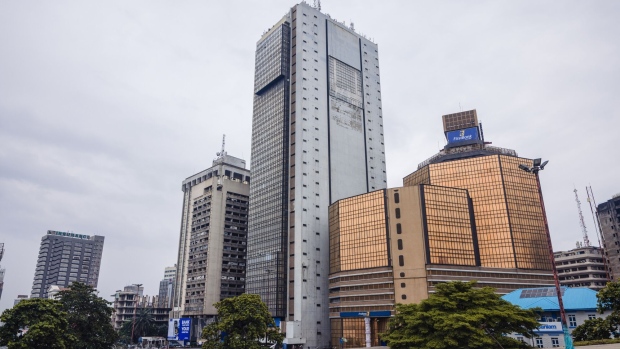Mar 29, 2024
Nigeria Tells Banks to Raise Minimum Capital to $359 Million
, Bloomberg News

(Bloomberg) -- Nigeria’s central bank increased the minimum capital requirements for lenders 10-fold as it seeks to bolster the defenses of an industry facing a steep naira devaluation, high inflation and a weak economy.
The Abuja-based Central Bank of Nigeria increased the capital threshold for operating an international bank to 500 billion naira ($359 million) from 50 billion naira previously, while lenders with in-country operations will need 200 billion naira of capital compared with 25 billion naira before, it said in a statement.
The requirement will “enhance banks’ resilience, solvency, and capacity to continue supporting the growth of the economy,” the central bank said, giving lenders 24 months from April 1 to meet the new rules.
It also said that the minimum capital “shall comprise paid-up capital and share premium only.”
Read more: Nigeria’s Cardoso Urges Lenders to Boost Capital Levels
All banks must to submit an implementation plan for meeting the new capital rules and various activities involved with their timelines not later than April 30, it said.
Central bank Governor Olayemi Cardoso, who assumed duty in September, used his first policy speech in November to warn banks to bolster their balance sheets.
In the past year, Africa’s most populous nation embarked on fiscal and monetary reforms aimed at rejigging the economy and jump-starting growth. The process has triggered pain, with the naira losing about 70% of its value against the dollar since June, and inflation reaching 28-year high of 31.7% in February.
Within the past year, some of the biggest firms have suffered losses and capital erosion from higher interest rates on dollar loans, leading the banks to book higher impairment charges.
The central bank last year directed lenders to save any foreign-currency revaluation gains to help them guard against the risk of an increase in bad debts.
The ratio of non-performing loans to total credits in the industry was 4.2% in September against a 5% benchmark, central bank data. The average capital-adequacy ratio was 12%, compared with a requirement of 10% for lenders with local operations and 15% for those with international licensing.
In Thursday’s decree, the bank also directed lenders operating in just a region of the country to increase their capital to 50 billion naira from 10 billion naira.
The last time the West African nation increased banks capital threshold was in 2004. The exercise led to several mergers and acquisitions, resulting in the number of commercial lenders dropping to 25 from from 89.
©2024 Bloomberg L.P.





